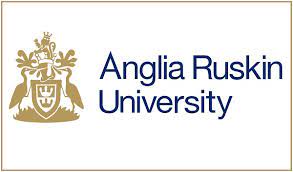Anglia Ruskin University: Event to explore role music played in the ‘Troubles’
As part of this year’s Cambridge Festival line-up, Dr Sean Campbell, Associate Professor of Media and Culture at Anglia Ruskin University (ARU), is delivering a talk which will consider the role music played during the ‘Troubles’ in Northern Ireland.
Throughout Combat Rock: Popular Music and the Northern Ireland Conflict, Dr Campbell will draw upon original interviews and items unearthed from archives to paint a vivid picture of the political opinions expressed through the work of various bands in the 1980s, along with their motivations for engaging in the topic.
With musical interventions having seldom been investigated compared to film or literary responses to the societal turbulence in Northern Ireland, the ARU academic will also assess how successful bands were at conveying messages about the conflict.
The talk, which takes place at 6pm on 23 March, zeroes in on the period between two moments Dr Campbell regards as culturally significant in the conflict: the IRA hunger strikes of 1980-81 and the British Government’s ‘broadcasting ban’ in 1988.
The work of mainstream acts such as The Police and U2 will be examined alongside other bands which have been overlooked in major accounts of political song, including That Petrol Emotion, Easterhouse and Ruefrex – all of whom expressed oppositional perspectives on the conflict.
Having penned Irish Blood, English Heart: Second-Generation Irish Musicians in England, which the Sunday Times named 2011 Music Book of the Year, Dr Campbell is now working on Combat Rock, a new book which will examine similar themes to his Cambridge Festival talk.
Discussing the event and the timely nature of exploring music from Northern Ireland, Dr Campbell said:
“The spectre of the Northern Ireland conflict cast a certain shadow, in recent years, over British political life, with post-Brexit media reports and political debates documenting anxieties about the ‘Irish backstop’ and Northern Ireland protocol.
“This, in turn, has prompted renewed attention on the conflict among scholars. While some of this work has explored artistic engagements with the ‘Troubles’ – through film and literature – less attention has been paid to musical interventions on the ‘Troubles’. This was despite popular music serving, at key moments in the conflict, as a site of debate or contestation, with many songs and videos being banned or censored.
“Perhaps more than anything, the bands that I explore in the talk sought to engage the British public on an issue that was often side-lined in other forums. In this context, the musicians regularly explained their wish to ‘change people’s ignorance of the situation’.
“In light of the persistent disinterest that has been shown towards Northern Ireland both during and after the recent Brexit crises, it would seem that this aspect of the bands’ respective projects remains as salient now as it was in the midst of the ‘Troubles’.”

